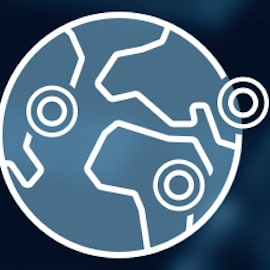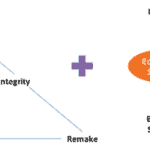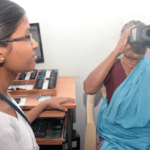Making Hardware Easier: ASME ISHOW Helps Expand Social Impact of ‘Frugal Technologies’
The American Society of Mechanical Engineers’ (ASME) annual social hardware competition doesn’t often feature entrepreneurs who are already selling their products on Amazon. The teams that participate in the Innovation Showcase (ISHOW) arrive with various stage prototypes; most, however, have a little way to go before their products make it into commercial markets.
Yet among products on display at this year’s ISHOW in Washington D.C. was the BioLite homestove, produced by a company that’s marketing a number of its products on Amazon; two members of the BioLite team were on hand to present it.
BioLite has been part of the clean cookstove movement since 2006, having first developed an efficient wood-burning stove for camping, then modifying its model for household cooking in emerging markets. The company has raised millions of dollars from impact investors. In turn, its products are available in more than 100 countries and its homestove is being used in more than 20,000 households worldwide.
BioLite participated in the ISHOW because it’s trying to figure out how to get more people to use its homestove. Simply put, reaching 20,000 households out of the nearly 3 billion people worldwide who still rely on open fires and traditional stoves for cooking is like a drop in the ocean. The company put the finishing touches on its second-generation homestove last year, and now it’s trying to crack deeper distribution in some very hard-to-reach places.
Considering that challenge, BioLite is a perfect example of the type of social hardware venture ASME’s ISHOW aims to support. ASME has been hosting the competition for more than a decade, but three years ago it changed track. The ISHOW went global, and social, recognizing that there’s an enormous opportunity to develop products for people who, because of where they live or how much they earn or what their livelihoods are, are underserved by mainstream technologies.
There are few resources to help “frugal technologies” and their makers succeed, however. “This is a problem,” notes the recent Hardware Pioneers report by FSG and the Lemelson Foundation (an ISHOW partner). “If we apply the wrong expectations, support mechanisms and investment capital to hardware-based pioneers, we will only be courting frustration on all sides and, ultimately, failure.”
That’s the problem that ISHOW tries to solve. The competition draws on ASME’s network of engineers, industrial designers, product specialists and diligence and standards experts, as well as venture capitalists and business specialists, all of whom are keen to see hardware innovation achieve a new level of positive impact. Judges don’t listen to traditional “pitches”; rather, they sit with the entrepreneurs to scrutinize the design and mechanics of the teams’ ideas and dissect their business models. Winners are selected as much for their openness to critical feedback as for their sound engineering and diligent market research.
This year, in addition to BioLite, the ISHOW’s roster of winners includes U.S-based vision care company PlenOptika, which is trying to bridge the gap between global eye care need and availability with a low-cost, easy-to-use eye examination device called QuickSee. A billion people around the world need glasses. “People assume the reason more people don’t have glasses is because glasses are unaffordable,” PlenOptika co-founder Shivang Dave explained to his ISHOW peers. “It’s not. It’s that there aren’t enough eye care specialists.”
In Kenya, the team behind Matibabu, a noninvasive malaria-testing device, won for its vision of making at-home malaria testing as easy and inexpensive as blood pressure or blood sugar-level testing. The idea was born out of one of the founders’ own experience with malaria: He suffered numerous episodes of the disease in university, which nearly put him a year behind in his studies. Faster, easier testing is necessary in malaria-prone regions because everyone, regardless of economic status, is at risk, the founders argued in Nairobi.
And in India, Saral Design Solutions won for its device automating sanitary napkin production. Government research in India reveals that less than 50 percent of rural Indian women have access to affordable and hygienic menstrual products. Saral has found that that percentage falls to the single digits in some regions, according to co-founder Suhani Mohan. In turn, many women miss work and girls miss school when they get their monthly periods, simply because they don’t have access to the products they need.
The full scope of problems addressed in this year’s ISHOW ranged from neonatal care to electricity-free refrigeration to wearable aids for the visually, hearing and speech impaired. (Check out the full list of ISHOW finalists and winners here). The intimate design and engineering “deep dives” with judges aimed to give each team something tangible and actionable to take away, while the 10 winners will begin working with design firm Catapult Design to improve upon their prototypes or enhance the branding and visualization of their products.
All of the ISHOW’s participants already know that hardware is hard. The ISHOW is learning year after year how to help make it a little less so. ASME’s deep experience and expertise in engineering rigor and standards plays a pivotal role in that, while ISHOW’s partnership with Catapult Design helps hardware entrepreneurs nudge closer to a viable final product.
But as the Hardware Pioneers research notes, “Great technologies alone are not enough – without robust business models, strong teams and effective delivery channels to take technologies to those who need them, the promise of technology will not be realized.” That’s why this year, the ISHOW is offering additional financial support to one of the 2017 winners. The award will be announced in October, at ASME and Engineering for Change’s inaugural “Impact Engineered” event in New York. The purpose of the event is to amplify the role of engineers in the new wave of social innovation that’s under way. From ISHOW’s point of view, it seems only natural that the contribution of social hardware pioneers should be amplified as well.
Paul Scott runs the ASME ISHOW and James Creel is a senior program manager with ASME’s Engineering for Global Development program.
Photo: Ethan Kay discussing BioLite’s implementation strategy, by Caitlyn Maginniss
- Categories
- Social Enterprise, Technology



